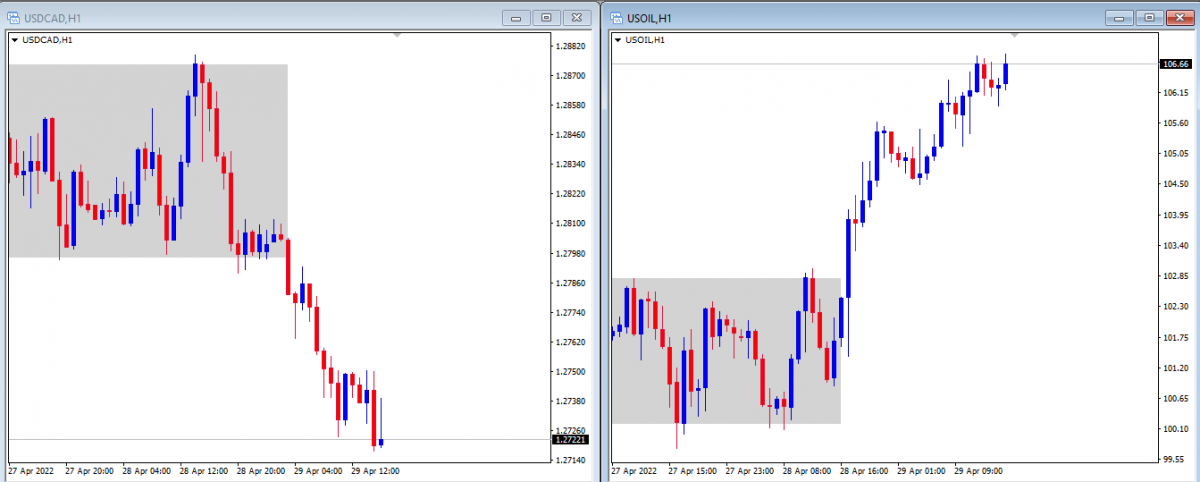What are the key factors that influence currencies exchange rates
The financial market as a whole is in a state of constant upward and downward pressure, with price movement fluctuating back and forth due to various economical, environmental and institutional factors that will be explained in great detail in this article.
Among other financial asset classes such as stocks, indexes, commodities, bonds, and cryptocurrencies. Currencies stand out as a major asset class that can be used in every aspect of the global economy as a means of exchange and payment for goods, and services, both on an international and local level.
The value of a currency relative to other currencies known as “foreign exchange rate” is in constant fluctuation.
The foreign exchange rate of an economy is one of the most important means through which the economic health of a country is determined. In other words, a country's economic stability is largely determined by its foreign exchange rate. It can be observed, analyzed and traded on the foreign exchange market.
Therefore it is very important to understand the fundamental factors and the changing market forces that influence a country's economy, which in turn affects its currency's exchange rate.
Why do these factors influence currencies.
Exchange rates are heavily influenced by macroeconomic factors since they largely determine the health of an economy, which is the most important consideration for foreign investors, stakeholders, institutional and commercial dealers when deciding whether to do business or invest in an economy.
These entities are in the business of making profits. In this regard, the events in a country will determine how foreign capital will be invested in its economy, thus affecting the value of its currency exchange rate.
This is a very crucial concept that serves not only forex traders. It is also important and beneficial to the general public, international and local business owners, investors, bankers and more
Benefit of knowing the factors that affect currencies exchange rates.
- Foreign exchange traders can often find arbitrage opportunities by analysing a number of currencies in order to make profits from a series of international transactions.
- Fundamental analysis is the evaluation of the intrinsic value of currencies and analyses of the factors that could influence a currency exchange rate in the future. Thus, it is best to combine fundamental analysis and technical analysis to get the best result in forex trading.
- All the asset classes of the financial market stocks, bonds, indices, commodities and currencies are correlated and interrelated. Some currencies are directly influenced by some of these assets. Therefore it is an advantage for the forex trader to know how and which asset affects a particular currency.
- Knowing the factors that affect the value of currencies help investors to make sound investment decisions.
Below, we'll discuss in comprehensive detail some of these key factors and major economic events that influence currencies.

- Economic report.
One most essential component of a forex trader's playbook is the economic report calendar. Forex traders rely heavily on economic reports to make the right trading decisions.
The most important economic reports include employment rates, retail sales, manufacturing indexes, Fomc, Non-Farm Payroll and many more that carry important information about the current state of an economy.
GDP known as Gross Domestic Product is the most significant economic metric often cited as the general indicator of an economy's strength and performance.
It is the total market value of goods and services output through a country's border within a specific period of time. Hence the report actually lags because it tells about an event that already happened.
Detailed economic data releases can be gotten from websites such as forexfactory.com, investing.com, FX Street, Daily FX and so on.
- Interest rates and inflation
Interest rates and inflation are highly correlated and they have a major impact on the value of a currency. The central bank of a country can manipulate interest rates in order to control inflation which in turn affects the value of the local currency.
Whenever the central bank of a country raises its interest rate, the currency appreciates in value because high-interest rates in a country attract foreign capital and lenders. Conversely, if the central bank of a country cut interest rates, the currency does not attract yield, which can lead to depreciation of the currency value.
What is the relationship between Interest rate and inflation?
Whenever a central bank raises its interest rate, the buying power of its currency increases (i.e the currency can purchase more goods and services). This, therefore, implies that inflation in that particular country is low.
But whenever a central bank cut interest rates, the buying power of its currency decreases. This, therefore, implies that inflation in that particular country is high.
- Inter-market and correlative effect
The global financial market consists of different asset classes that have common relationships and are correlated to each other. This is no exception for currencies. Although all currencies are affected by global events, some are also heavily linked to other assets.
It is important to note and understand this correlation and how they work.
Let's go through some notable examples
- The first and most important concept to understand is that the US Dollar is the official reserve currency of the world. In essence, when the US dollar rises, foreign currencies are expected to decline in value and vice versa.
- Another important concept is the impact of the interest rate market on the US dollar. Whenever the interest rate market rises, the US dollar is expected to rise which means bearishness for foreign currencies. Conversely, when the interest rate market declines, the US dollar is expected to decline as well which means bullishness for foreign currencies.
- Economies that export commodities as a major source of revenue will be influenced by the commodity market. For instance, the Australian dollar is directly correlated to Gold while the Canadian dollar is directly correlated to oil.

Canadian dollar direct correlation to Oil prices.
UsdCad inverse correlation to Oil prices.
- Government debt
Although government debt can be detrimental to an economy, it can be used to foster infrastructural development as well as economic growth.
Inflation and currency devaluation is usually the consequence of excess debt in an economy.
How does this happen?
In the event of increased public debt, the government may print more money, increasing the amount of money in circulation. This is known as quantitative easing. The effect of this is that the value of the currency holding value reduces, as also inflation.
In another case whereby there is an expectation of increment in government debt. Foreign investors might be forced to sell their bonds in an open market which will cause the local currency to diminish in value due to oversupply.
- Terms of trade
Terms of Trade according to Wikipedia is the amount of import goods an economy can purchase per unit export goods.
A country's economy is said to have a 'trade surplus' whenever its exports outweigh its imports’. The currency value of the ‘exporting country’ rises when foreign consumers buy its currency in order to purchase its exported goods, thus an increase in GDP which contributes to positive growth in the economy of that country.
On the other hand, a country's economy has a trade deficit when its imports are greater than exports. Due to the country's need to sell its own currency to buy imported goods, the value of its currency depreciates.
- Sentiment
Market sentiment refers to the bias that investors and speculators have towards an economy because of its events and current happenings.
The stability of a country's political system is one of the many factors that affect economic performance.
Other factors that affect economic performance include geopolitical events, environmental (or natural) disasters, and impending elections.
Foreign investors and speculators are always sentiments biased. That is, they will restrain and withdraw their existing investment from an economy that is threatened with crisis.
On the other hand, if the events and current happenings in an economy are stable, positive and supportive of foreign investments. This positive outlook on a country's economy will attract foreign investors and will cause the local currency to appreciate in value.
- Economic growth and recession
Recession as opposed to economic growth refers to a significant decline in general economic activities in a country. Recession can be characterized by unemployment, drop in GDP, inflation and so on.
During a recession, a country’s interest rate is most likely to be low. Recession in any economy is a red flag to foreign investors.
This has a negative effect on the stability and progress of an economy thus reducing the value and the competitive advantage of a currency in the foreign exchange market.
Conclusion
There are other minor factors that influence currencies exchange rate but we have reviewed the most important factors.
Reading this article up to this point and being aware of these major economic factors makes you more knowledgeable about the foreign exchange market than 90% of the world population. It puts you ahead in business, investment and forex trading.
In addition, all forex traders are able to back up their technical analysis with fundamental data and economic reports.
An individual trying to avoid potential losses due to currency exchange rates may opt for a locked-in exchange rate service, which guarantees currency exchange at the same rate in spite of unfavourable economic conditions.
Click on the button below to Download our "What are the key factors that influence currencies exchange rates" Guide in PDF


